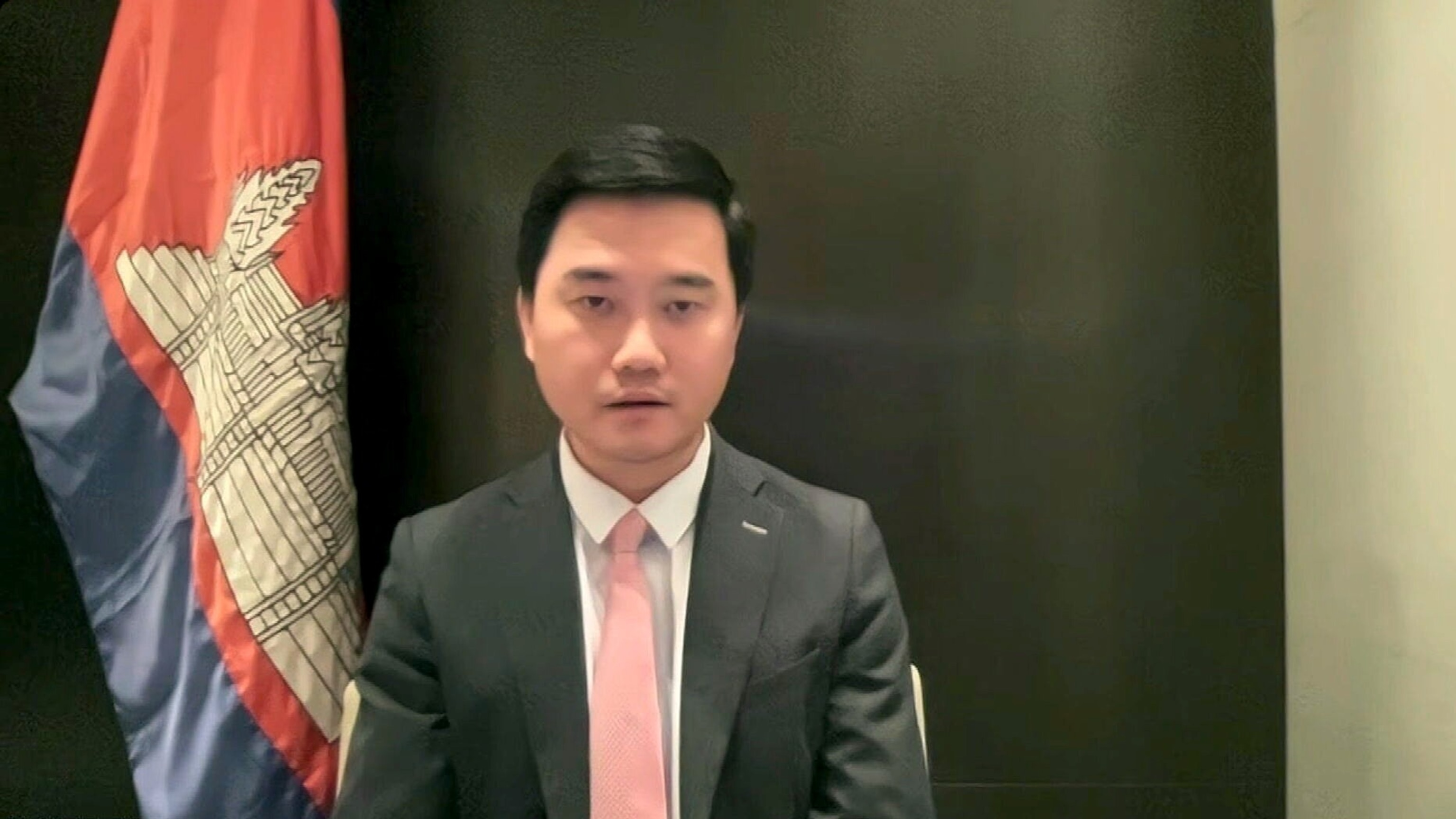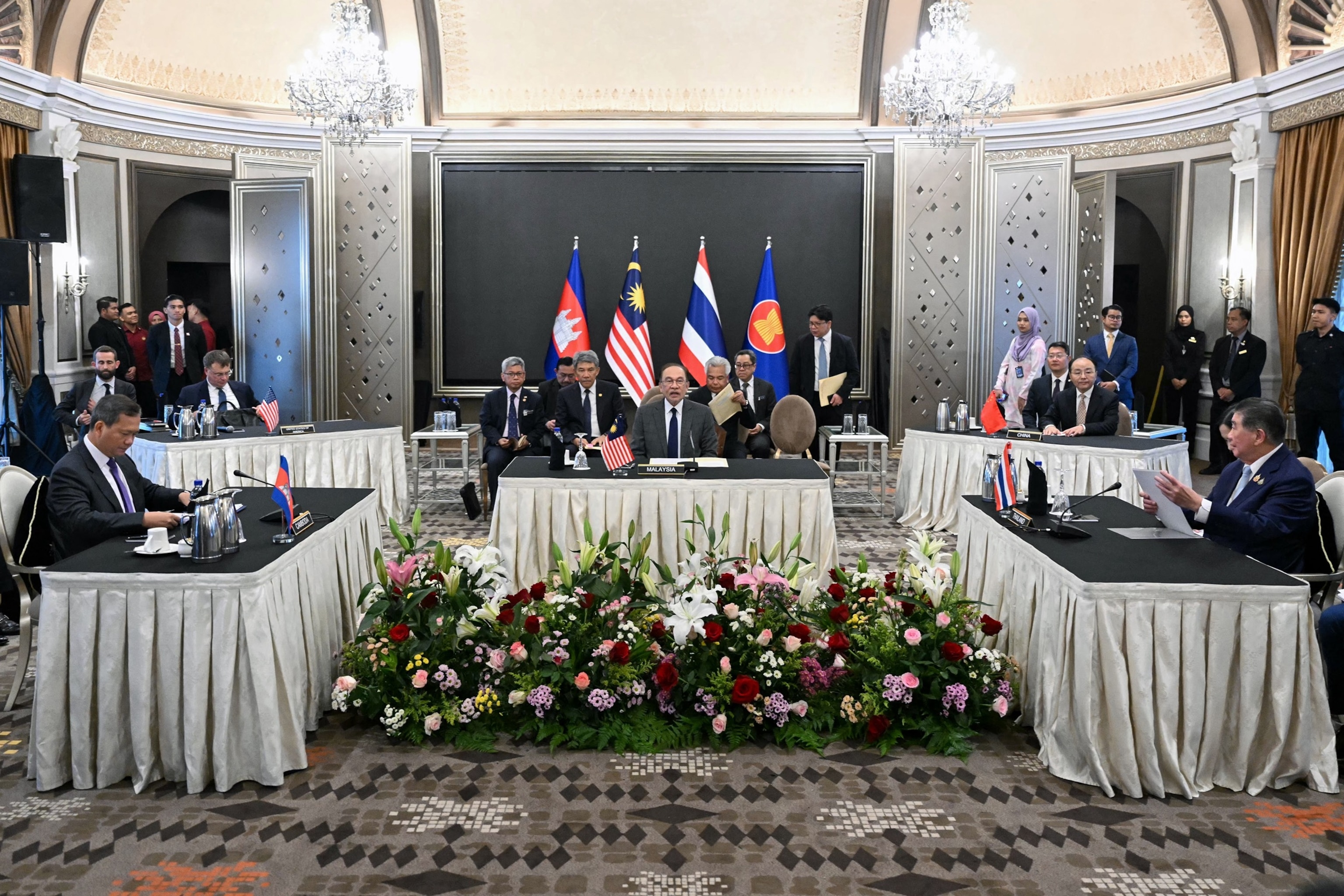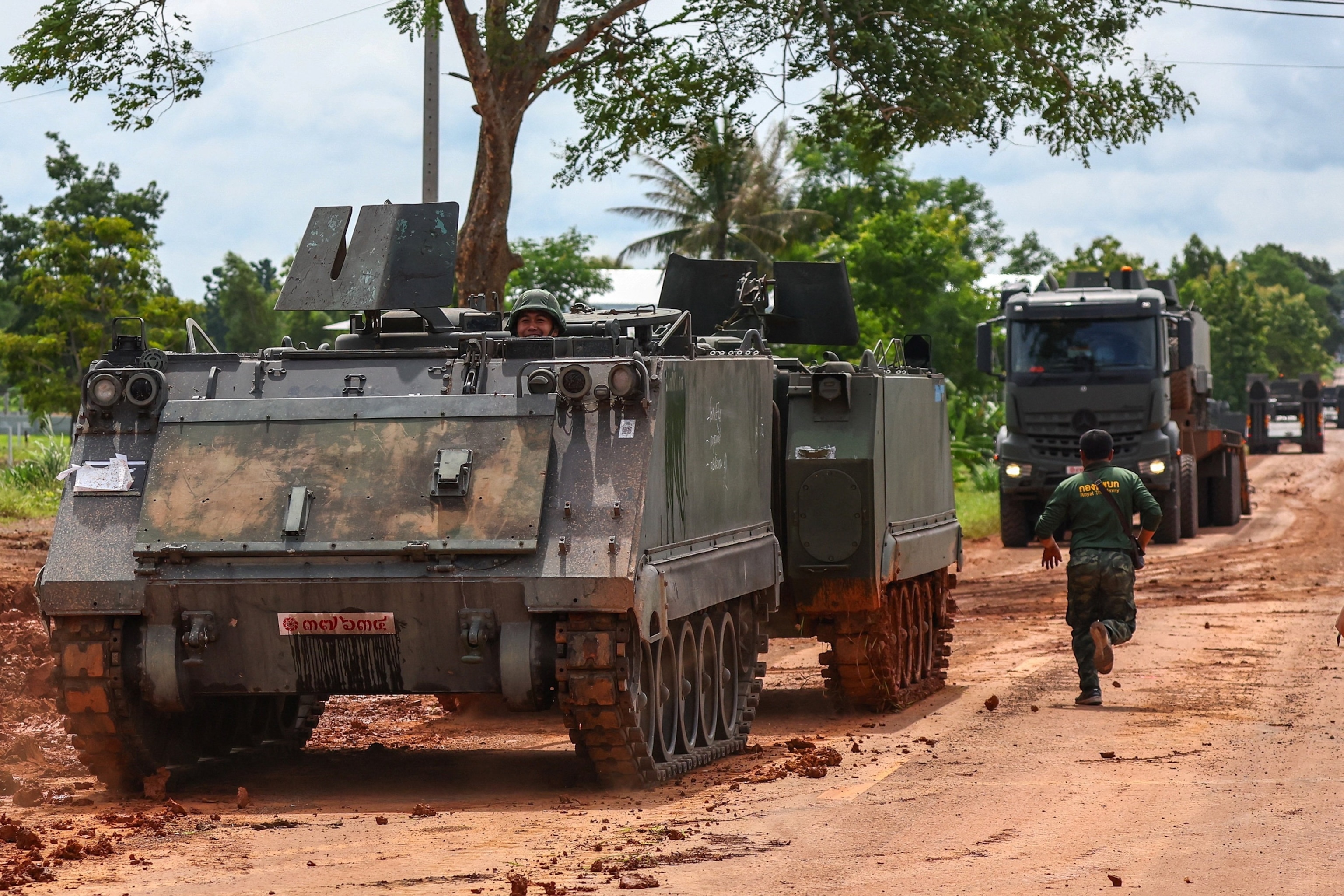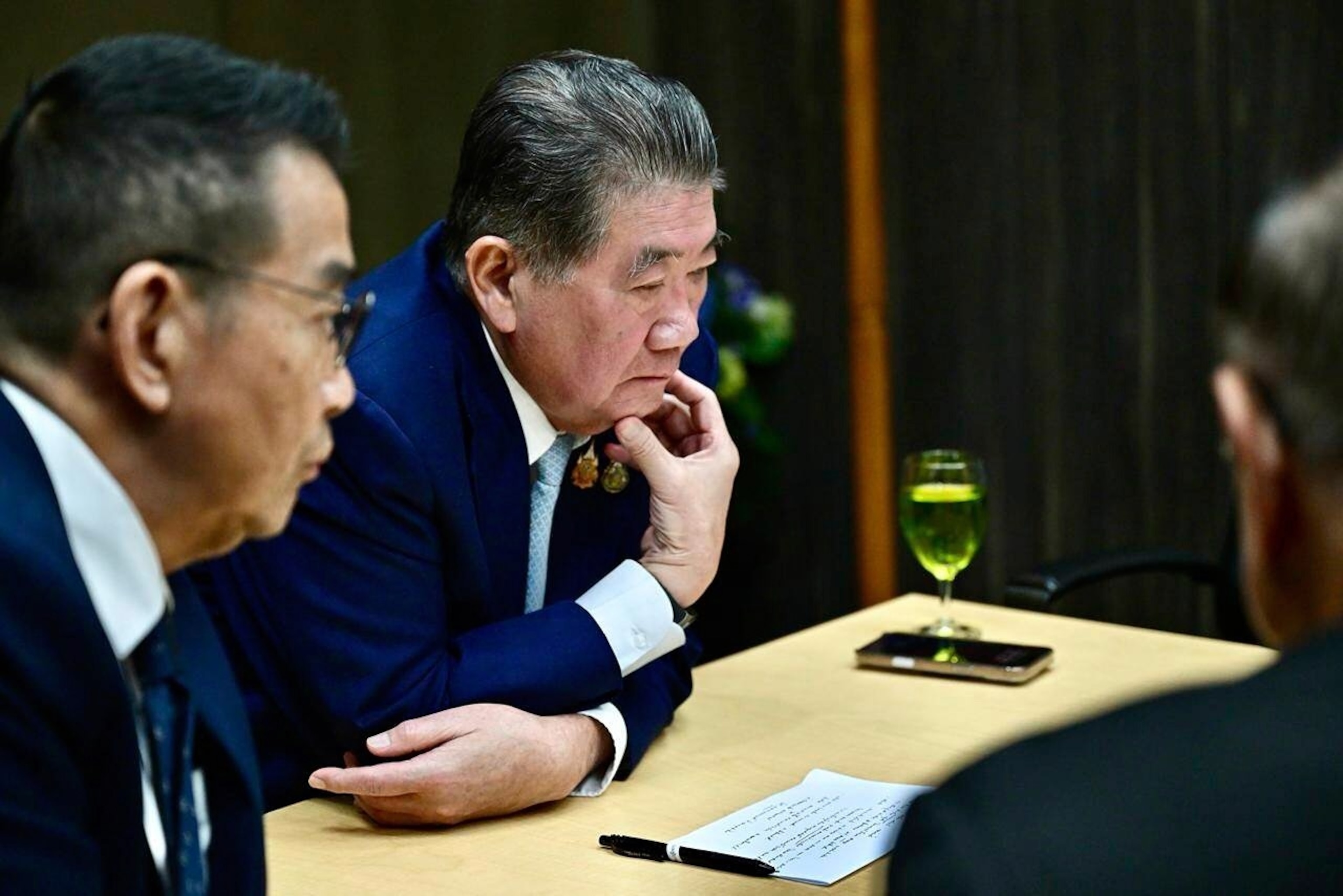

A Cambodian government official has praised U.S. President Donald Trump for "bringing about peace" after Thailand and Cambodia agreed to a cease-fire starting at midnight local time on Monday.
The two sides pledged to lay down their weapons following their deadliest fighting in more than a decade. At least 36 people were killed and hundreds of thousands of civilians fled the disputed border areas between the Southeast Asian nations.
The ceasefire comes amid pressure from Trump, who said on Truth Social on Saturday that he'd pause trade tariff talks with both countries if hostilities continued. Thailand had initially rejected the offer of a third party mediation but changed its tune following Trump's tariff threat.
"Cambodia fully supports the initiative from the U.S., particularly President Donald Trump, to end the conflict or to immediately have a ceasefire," Lim Menghour, Director General of Cambodia's National Assembly, told ABC News on Monday.

"Our prime minister received a call from U.S. President Donald Trump who offered mediation to end this conflict, and immediately our prime minister accepted the offer," he added.
Menghour described Monday's ceasefire talks in Malaysia as "a good meeting with a good result," which "produced a positive development."
In announcing the ceasefire, Malaysian Prime Minister Anwar Ibrahim, flanked by his Thai and Cambodian counterparts, described it as "a vital first step to a de-escalation and a restoration of peace and security."
The two beleaguered leaders shook hands with each other after holding face to face talks for the first time since the conflict first began on Thursday, with both sides blaming each other for firing first -- then pounding each other with attacks along the contested border areas.

There's skepticism over whether this ceasefire, which centers around a century-old border dispute, will actually last. While Menghour said the immediate cessation of hostilities is key to resolving this dispute, Cambodia has stated its position clearly.
"We do not let go of our sovereignty, our territorial integrity," he stressed.
Landmines and nationalism
This conflict was an escalation of a months-long standoff fueled in part by landmines and nationalist fervor.
Both countries accused each other of opening fire first, early on Thursday near the Ta Moan Thom temple -- around 224 miles from Bangkok.
The initial salvos were followed by what Thailand described as airstrikes on military targets in Cambodia, as Bangkok accused Phnom Penh of shelling and killing civilians.
Thailand's military closed all border checkpoints with Cambodia and said that fighting was taking place at several points along the undemarcated border, prompting Bangkok to activate an emergency war readiness plan.
This armed conflict also comes on the back of a full-blown diplomatic crisis reignited by Bangkok last Wednesday when it said it would withdraw its ambassador to Cambodia and expel Cambodia's own envoy to the country.

Thailand's decision followed a land mine blast that wounded five Thai soldiers along the disputed border. A week earlier, another land mine in a different contested area exploded and wounded three Thai soldiers when one of them stepped on it and lost a foot, according to the Thai Army.
Cambodia responded by downgrading diplomatic relations with Thailand to their lowest level and recalling all Cambodian staff from its embassy in Bangkok.
Phnom Penh also rejected Bangkok's claims of placing landmines in disputed areas, describing them as baseless claims and instead saying that Thai soldiers had veered off agreed patrol routes and triggered a mine left behind from decades of war.
Cambodia has many landmines left over from its civil war decades ago, numbering in the millions, according to de-mining groups.

Tensions between the two countries have been escalating since a brief exchange of gunfire in late May in one of several small patches of land both countries claim as their own territory.
Nationalism has further inflamed the situation on both sides, and Thailand's Prime Minister Paetongtarn Shinawatra was suspended from the top job earlier this month over a leaked call with Cambodia's influential former leader Hun Sen in which she was seen as appeasing him over the border row, while undermining her own military.
Her dynasty family - which has dominated Thai politics in this millennium -- is also accused of cozying up to Cambodian officials because of their vast business interests in the country.
However, the roots of this conflict go even deeper. For more than a century, Thailand and Cambodia have contested sovereignty at various contested points along their 508 miles land border, which has led to skirmishes over several years and at least a dozen deaths, including during a weeklong exchange of artillery in 2011.
